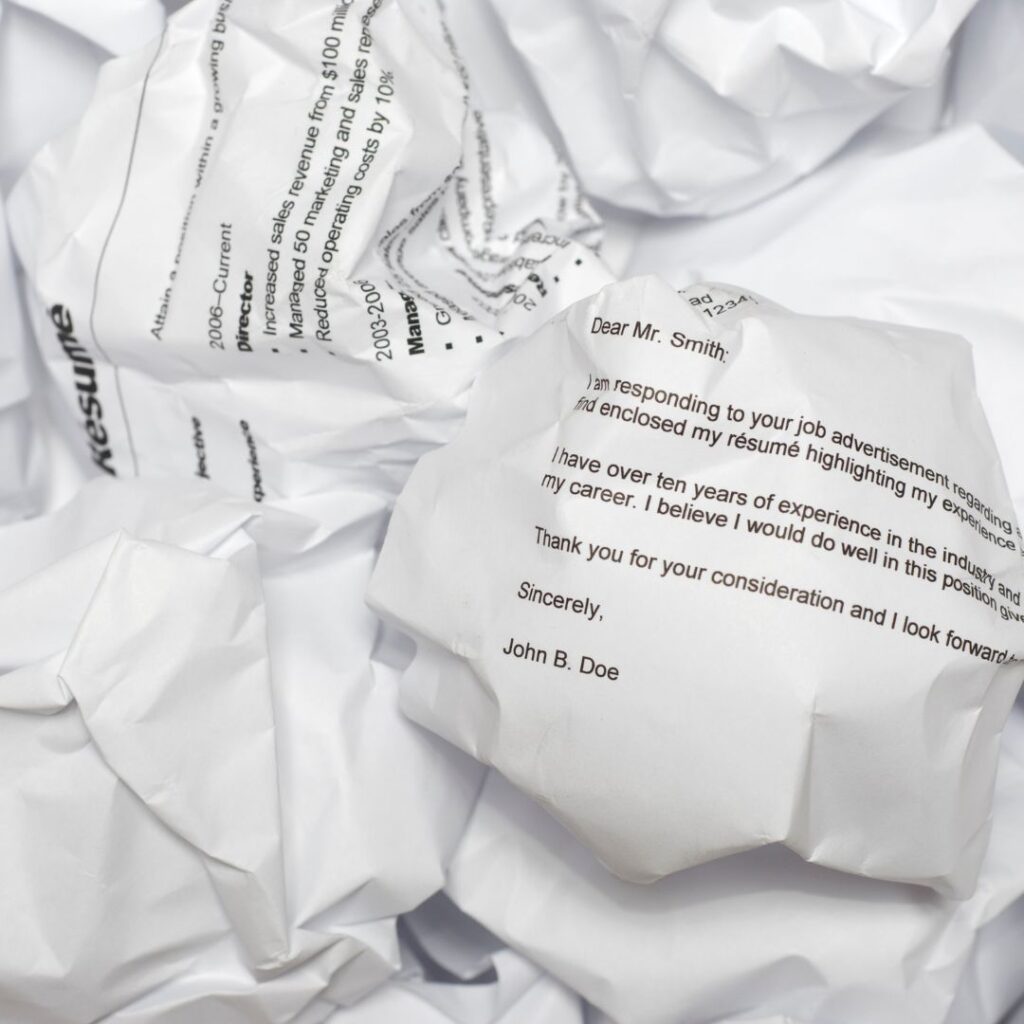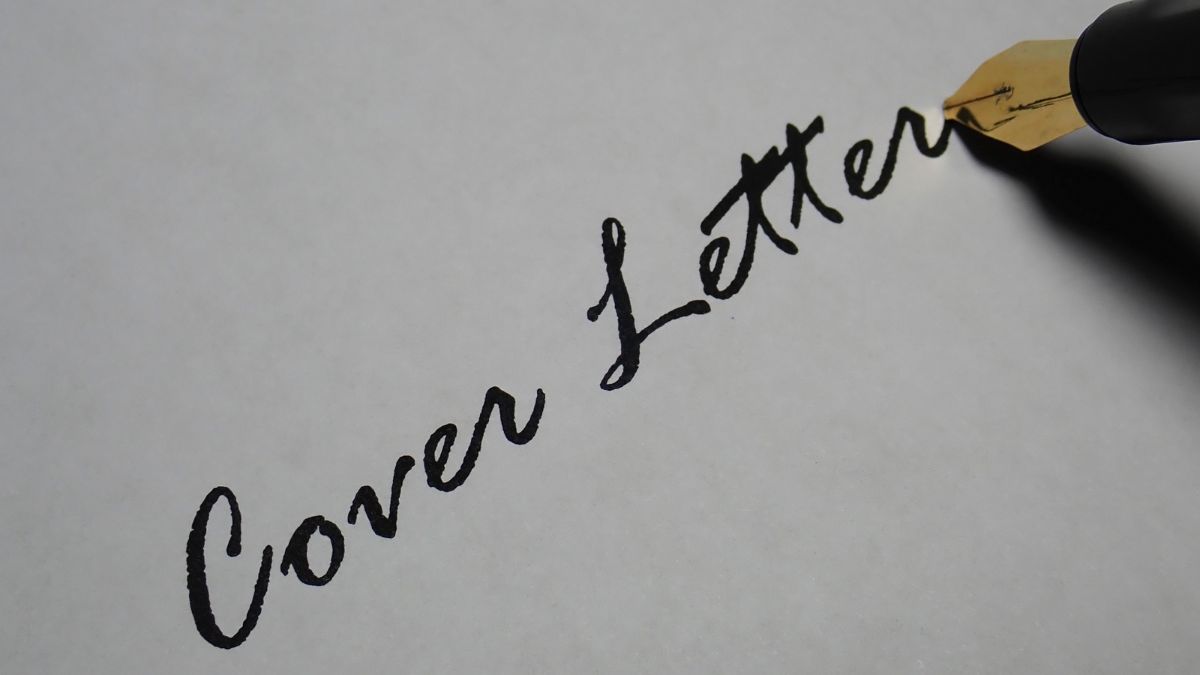Table of Contents
- Introduction
- Understanding the Publishing Industry
- What Makes an Effective Cover Letter?
- A 5-Step Guide to Writing Your Cover Letter
- Tailoring Your Cover Letter to the Publishing Industry
- Common Mistakes to Avoid When Writing Your Cover Letter
- A Good Example of A Cover Letter for a Publishing Job
- Conclusion
Introduction
A cover letter is one of the most important parts of a job application. This write-up will guide you through important steps in writing an effective cover letter for a publishing job. A good example of a cover letter is also provided for your use.
Though it may only be a page long, a well-prepared cover letter can distinguish between getting an interview and rejected. This is especially true in competitive industries like publishing, where there are often many qualified applicants for a single opening.

When applying for a publishing job, your cover letter provides the first impression of your candidacy. It’s an opportunity to introduce yourself, explain your interest in the role and company, and highlight your most relevant qualifications. A strong cover letter grabs the hiring manager’s attention, positioning you as a promising candidate worth interviewing. A cover letter is to be used together with your resume.
In the publishing industry, hiring managers look for cover letters that showcase your passion for books, reading, and the business of publishing. They want to see that you understand the industry’s unique challenges and opportunities.
Your cover letter should demonstrate your editing, marketing, design, analytics, and project management skills. Specific examples of your related experience (e.g., familiarity with book publishing workflow) and achievements (e.g., creating an award-winning book cover) can help you stand out.
This write-up will provide a step-by-step guide to writing an engaging, effective cover letter tailored to the publishing field. Whether you’re applying for an editorial assistant role, a proofreader job, a marketing coordinator position, or any other publishing job, these tips will help you create a polished cover letter that puts your best foot forward.
Understanding the Publishing Industry
The publishing industry plays a vital role in producing and disseminating information to the public through books, magazines, newspapers, and online content. Here is a brief overview of this dynamic industry and the key skills employers look for:
Overview of the Publishing Industry
Publishing involves creating, producing, and distributing content to audiences. The core publishing sectors include books, newspapers, magazines, and digital publishing. Key activities in publishing include content acquisition, editing, design, production, marketing, and distribution. The industry has undergone major changes in recent years due to the rise of digital and self-publishing.
Some key characteristics of the publishing industry today include:
- The shift towards digital publishing and ebooks
- Consolidation of major publishers through mergers and acquisitions
- The emergence of online retailers as major distribution channels
- Rise of self-publishing and growth of indie publishers
- Increasing globalization of content acquisition and distribution
Required Skills and Qualifications
Given the evolving nature of the publishing industry, employers look for candidates with diverse skill sets. Some key skills and qualifications sought after include:
- Exceptional written and verbal communication abilities
- Strong editorial skills, including fact-checking, copyediting, and proofreading
- Project management and organizational skills to handle multiple projects
- Creativity and problem-solving skills
- Passion for books, writing, and reading
- Familiarity with publishing software and digital platforms
- Knowledge of the publishing process from manuscript to finished product
- Academic credentials related to English, Journalism, Communications, or Business
Understanding the publishing industry’s unique landscape and required competencies is key to crafting an effective cover letter for these roles.
What Makes an Effective Cover Letter?
An effective cover letter is a critical part of any job application. For publishing roles, the cover letter offers a valuable opportunity to showcase your skills, experiences, and passion for the industry.
Here are some of the key elements that make for an impactful cover letter when applying for a job in publishing:
Demonstrating Your Interest in and Knowledge of the Company
Research the publisher or publication you are applying to so you can speak directly to their mission, values, and catalog. Show the hiring manager that this role and company fit you well by referencing specifics that resonate with your background and interests.
Highlighting Relevant Skills and Qualifications
Draw connections between your skills, experiences, education, and the requirements listed in the job description. Give specific examples illustrating skills like editing, fact-checking, collaborating with authors, marketing books, etc. Quantify your achievements when possible.
Customizing Your Letter for Each Application
Generic cover letters are easy for hiring managers to spot. Tailor each letter to the specific role and company. No two cover letters should be the same. Use the job description as a guide for which qualifications and accomplishments to emphasize in your letter.
Conveying Your Passion for Publishing
Hiring managers want to get a sense of what motivates you. Communicate your genuine excitement for the publishing world and the position you’re applying for. Share insights on trends or issues in the industry to demonstrate your engagement.
Exhibiting Strong Writing Skills
Since publishing is all about words on a page, your cover letter is a chance to exhibit your writing skills. Craft clear, engaging content free of errors. Use vivid language and vary your sentence structure to make your letter stand out.
An effective cover letter doesn’t repeat your whole resume – it highlights your most relevant qualifications. The following strategies can help you write a compelling letter tailored to publishing roles.
A 5-Step Guide to Writing Your Cover Letter
Writing an effective cover letter is crucial for landing a job in publishing. Here is a step-by-step guide on how to structure and write your cover letter:
1. Header
The header of your cover letter should include your name and contact information at the top, followed by the date and company address below. Make sure to address your letter to the hiring manager or recruiter by name if possible.
2. Opening Paragraph
Your opening paragraph should start with why you are writing. Mention the job title and where you found the job posting. Express your interest and enthusiasm for the role and company.
3. Middle Paragraphs
Use the middle paragraphs to highlight your relevant skills, experiences, and accomplishments. Refer to the job description and connect your background directly to the employer’s needs. Provide specific examples of instances where you demonstrated skills they are looking for.
For publishing roles, emphasize experiences like editing, writing, proofreading, collaborating with authors, managing projects, marketing books, etc. Quantify your achievements when possible.
4. Closing Paragraph
Close your cover letter by reiterating your interest in the job. Thank the employer for their consideration and mention that you look forward to discussing the role further. Provide your contact information again.
5. Proofread and Edit
Be sure to proofread your cover letter thoroughly before sending it out. Check for typos, grammar issues, and awkward phrasing. Read it aloud and make edits to improve clarity and flow.
Tailor your cover letter to each application. Highlight different skills and experiences based on the specific job description.
These steps will help you craft an engaging cover letter that makes a strong case for your candidacy.
Tailoring Your Cover Letter to the Publishing Industry
When applying for a job in publishing, it’s essential that your cover letter demonstrates a clear understanding of the industry and highlights your relevant skills and experience. Here are some tips for tailoring your cover letter specifically for publishing roles:
Highlight Your Passion for Books and Reading
Employers want to know you are genuinely interested in books, writing, and publishing. Include examples of books or authors that have inspired you, discuss your reading habits, and share any relevant writing samples or book reviews you’ve done.
Showcase Your Editorial Skills
Editorial skills like proofreading, fact-checking, editing manuscripts, and providing constructive feedback are highly valued in publishing. Provide specific examples of projects where you applied these skills successfully. Mention any formal training or education in editing as well.
Demonstrate Your Understanding of the Industry
Briefly explain your knowledge of the publishing workflow, key roles, and current trends/issues in the industry. This shows the employer you’ve done your research. Mention authors, imprints, or titles related to that specific publisher.
Align Yourself with the Company’s Mission
Look up the publisher’s website to understand their company culture, values, and catalog. Then, tailor your cover letter to highlight how your skills and experience align with their mission. This shows you’re a good fit for that specific role and company.
Emphasize Relevant Software Skills
Many publishing jobs require skills like Adobe InDesign, Canva, Microsoft Word, Excel, PowerPoint, and more. Include a skills section in your cover letter highlighting your expertise in any software or tools commonly used in publishing.
With some customization and relevant details, your cover letter will demonstrate you have what it takes to succeed in a publishing role. Don’t be afraid to showcase your personality and passion for the industry.
Common Mistakes to Avoid When Writing Your Cover Letter
When applying for jobs, especially in a competitive industry like publishing, your cover letter can make or break your chances of landing an interview. Avoiding common mistakes that could diminish your chances of being considered is important. Here are some mistakes to avoid when writing your cover letter for a publishing job:
Generic and Vague Statements
Avoid using generic statements that could apply to any job or industry. Instead, focus on specific skills, experiences, and achievements relevant to the publishing industry.
Neglecting to Proofread
Carefully proofread your cover letter for spelling or grammatical errors. Mistakes in your cover letter can create a negative impression and suggest a lack of attention to detail.
Focusing Too Much on Yourself
While it’s important to highlight your skills and experiences, remember also to emphasize how you can contribute to the company and its goals. Show the employer what value you can bring to the organization.
Including irrelevant information
Tailor your cover letter to the job you’re applying for. Avoid including irrelevant information that doesn’t directly relate to the position’s requirements.
Too Long-winded
Keep your cover letter concise and to the point. Hiring managers often have limited time to review applications, so ensure your cover letter is easy to read and highlights your most relevant qualifications.
By avoiding these common mistakes and following the tips provided, you can create a compelling cover letter that showcases your passion for the publishing industry and positions you as a strong candidate.
A Good Example of A Cover Letter for a Publishing Job
Here is an example of a good cover letter for a publishing job that you can use and customize:
Ross Michael 123 Elm Street, Apartment 4B New York, NY 10001 (212) 555-7890
Monica Smith The Yorker Magazine 123 Literary Lane New York, NY 10010
Dear Mrs. Smith,
I am writing to express my enthusiastic interest in the Editorial Assistant position at The Yorker Magazine, as advertised on the Monster job board. With a strong background in writing and editing and a genuine passion for publishing, I am eager to contribute my skills and dedication to your esteemed publication.
I have honed my editorial and communication skills throughout my academic and professional journey. I am excited to apply them in a dynamic and creative environment like The Yorker Magazine. As a graduate with an English Literature and Creative Writing degree, I have developed exceptional writing and editing abilities.
I am meticulous and have a keen eye for grammar, style, and punctuation. I am confident in assisting in proofreading, copyediting, and fact-checking to ensure the highest editorial standards are met. I am an avid reader of The Yorker Magazine and admire its commitment to delivering high-quality, thought-provoking content. I am excited to contribute to a publication that aligns with my interests and values.
Thank you for considering my application. I would welcome the opportunity to discuss further how my background and experience align with your needs. Please find my resume attached for your reference.
Yours sincerely,
Ross Michael
Conclusion
Writing an effective cover letter for a publishing job can be challenging, but it is achievable with the right approach and understanding of the industry. A compelling cover letter should demonstrate your passion for books and publishing, highlight your relevant skills and experiences, and align with the company’s mission and values.

Tailoring your cover letter to each specific role and avoiding common mistakes can significantly increase your chances of securing an interview. Remember, your cover letter is your first chance to make a lasting impression on potential employers, so take the time to craft a letter that meets the basic requirements and stands out in a crowded field.
By following the steps and tips outlined in this guide, you will be well on your way to creating a powerful cover letter that showcases your qualifications and enthusiasm for the publishing industry.

